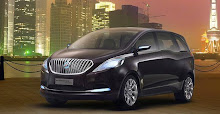
Power comes from a 2.0-litre four-cylinder diesel engine generating 120 kW/163 hp and peak torque of 360 Newton-metres/265 lb-ft all the way from 1,750 to 3,000 rpm. All that power helps the car sprint from 0 to 100km/h in just 8.2 seconds while the top speed is limited at 225 km/h or 140 mph.
As for the economy data, the 320d easily overcomes the 2010 Toyota Prius and Lexus HS 250h. With an impressive fuel consumption of just 4.1 litres diesel/100 kilometres (equal to 68.9 mpg imp) and a CO2 rating of 109 grams per kilometre in the EU test cycle, it’s regarded as the most fuel-efficient and lowest-emission car in BMW’s current model range.
As the name ‘EfficientDynamics’ speaking, the vehicle strictly accords with BMW's EfficientDynamics program. A range of technologies serving to reduce both fuel consumption and emissions are included, such as: regenerative brakes, Auto Start/Stop for the engine, the gearshift point indicator which tells the driver in good time when to shift gears in the interest of optimum efficiency and the EPS Electronic Power Steering to obtain the maximum efficiency.
Engineers also fitted a dual-mass flywheel and Centrifugal Pendulum Absorber mounts to the engine to quell vibrations and a lowered suspension to improve performance as well as efficiency.
The car also comes with the new Aero wheel rims in turbine wheel design , shown also on the brand new 2010 Bmw X6 Hybrid, which improve the level of aerodynamics to an even higher standard.
When it goes on sale in Germany, Italy, France and Spain, the engine and the entire car will get even higher standard of efficiency, optimised aerodynamics, an extra-long final drive ratio, and an innovative two-mass flywheel incorporating a centrifugal-force pendulum will be included.





No comments:
Post a Comment